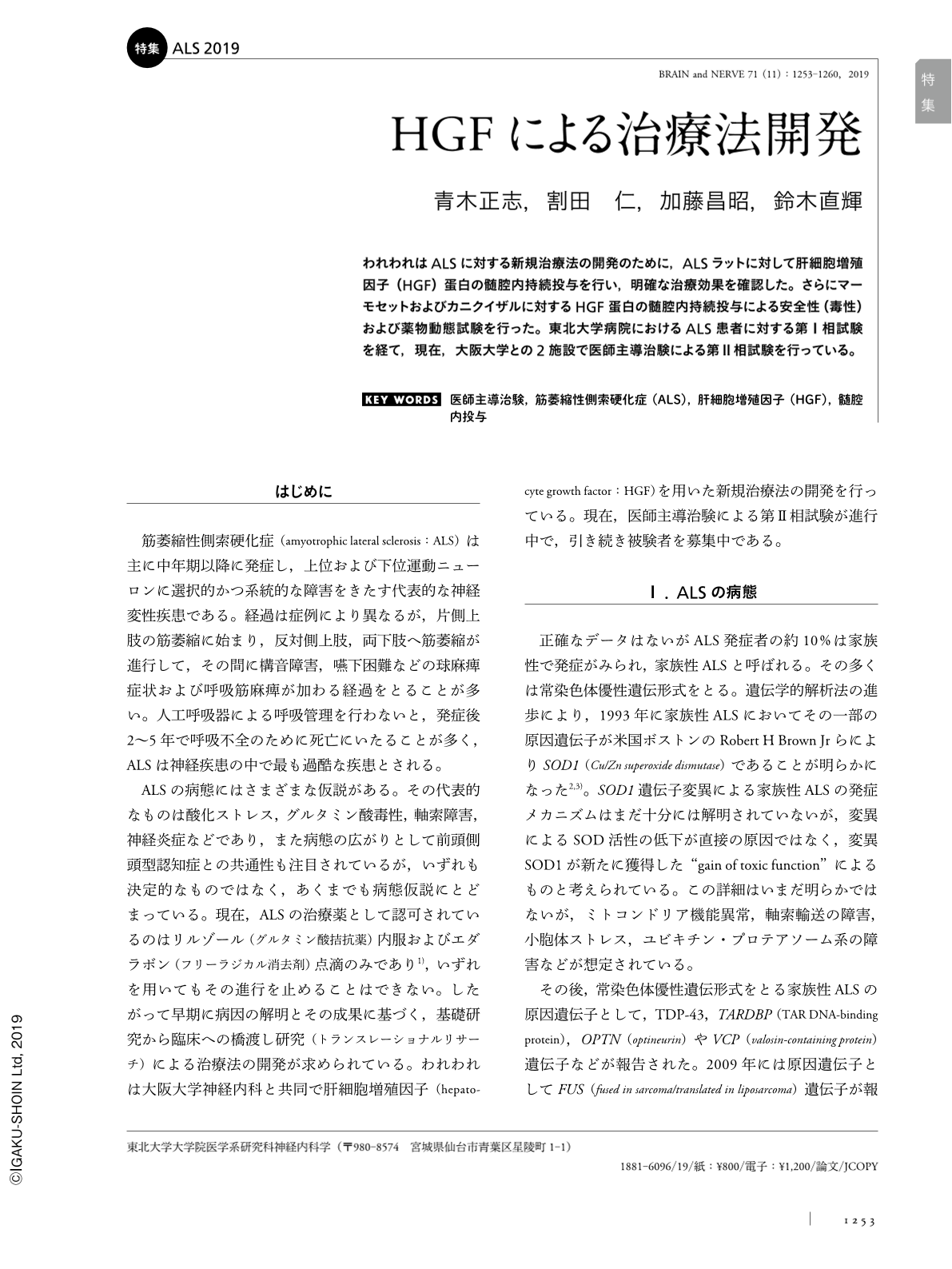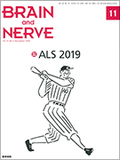Japanese
English
- 有料閲覧
- Abstract 文献概要
- 1ページ目 Look Inside
- 参考文献 Reference
われわれはALSに対する新規治療法の開発のために,ALSラットに対して肝細胞増殖因子(HGF)蛋白の髄腔内持続投与を行い,明確な治療効果を確認した。さらにマーモセットおよびカニクイザルに対するHGF蛋白の髄腔内持続投与による安全性(毒性)および薬物動態試験を行った。東北大学病院におけるALS患者に対する第Ⅰ相試験を経て,現在,大阪大学との2施設で医師主導治験による第Ⅱ相試験を行っている。
Abstract
Amyotrophic lateral sclerosis (ALS) is an adult onset neurodegenerative disorder characterized by the death of upper and lower motor neurons. About 10% of all ALS cases are familial, and we have identified SOD1 and FUS mutations as the most common causes in a consecutive series of 111 familial ALS pedigrees in Japan (Nishiyama A, 2017). From studies of the TDP43, FUS, and C9orf72 genes, perturbations of RNA processing can be highly adverse in motor neurons. Hepatocyte growth factor (HGF) is one of the most potent survival-promoting factors for motor neurons. We administered human recombinant HGF (hrHGF) by continuous intrathecal delivery to transgenic rats at onset of paralysis for 4 weeks. Intrathecal administration of hrHGF attenuated motor neuron degeneration and prolonged the duration of the disease by 63% (Ishigaki A, 2007). To translate this strategy to human treatment, we induced a contusive cervical spinal cord injury in the common marmoset, a primate, and then administered hrHGF intrathecally. We conducted a first-in-human phase I trial of intrathecal hrHGF in 15 Japanese patients with ALS (Warita H, 2019). Based on the results, we are conducting a phase II trial of intrathecal hrHGF for patients with ALS.

Copyright © 2019, Igaku-Shoin Ltd. All rights reserved.


